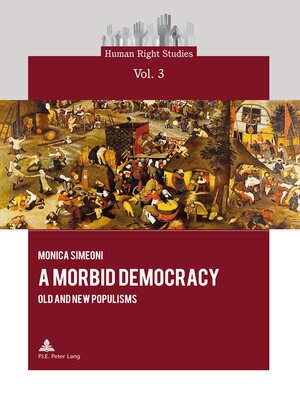
Sign up to save your library
With an OverDrive account, you can save your favorite libraries for at-a-glance information about availability. Find out more about OverDrive accounts.
Find this title in Libby, the library reading app by OverDrive.



Search for a digital library with this title
Title found at these libraries:
| Library Name | Distance |
|---|---|
| Loading... |
The crisis of democracy in Europe and the inability of the political parties and élites to adequately meet the challenges of globalisation exposes the increasingly fragmented middle classes to the temptations of Euroscepticism, and, in some cases, xenophobia. This appears to be a portrait of contemporary reality, but the current crisis has deep roots. The Spanish thinker José Ortega y Gasset described the pathologies of the mass man and of the nascent democratic system as far back as the beginning of the twentieth century, in a significant text entitled Una democracia morbosa, which appears to foreshadow the present state of affairs. The crisis of the average man, the degradation and devaluation of culture appear to be the distinctive traits of the new, post-ideological democracy of our times, known as «audience democracy». The political parties, faced with this profound crisis, in some cases seek dangerous shortcuts through demagogic and rhetorical use of the term «people», while the charismatic figure of the leader gains in prestige as a reference model. Resentment, caused by lack of representation of the just demands of the citizens, can turn to anger and destabilise the institutions of democracy. There is therefore an urgent need for an inclusive Europe with a renewed welfare system, based around the citizenry and not the masses.







